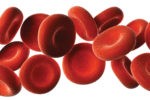Recent mRNA Vaccine Study: Answers for Patients & Families

Story by Erin Post, Pancreatic Cancer Action Network
A team of researchers recently published a paper in the journal Nature that caught the attention of news media and all those affected by pancreatic cancer. Although a small, early phase clinical trial, results from the study showed that using mRNA vaccine technology to deliver personalized treatment holds promise for patients with pancreatic cancer. Read more about the study, implications for patients with pancreatic cancer and the field of immunotherapy overall.
What are the basics of this study? What did the researchers test?
This phase I clinical trial from Memorial Sloan Kettering Cancer Center tested mRNA vaccines as a possible therapy for pancreatic cancer. Investigators used proteins from each participant’s tumor to create a personalized vaccine. The strategy for this clinical trial was based on previous studies evaluating the immune response in patients with short- vs. long-term survival from pancreatic cancer work was partially funded by the Pancreatic Cancer Action Network (PanCAN). The goal of the newly published study was to train the patient’s immune system to recognize and attack the pancreatic cancer cells in their body, an approach to cancer treatment called immunotherapy. Other studies are exploring immunotherapy for pancreatic cancer, but this was one of the first to use mRNA vaccine technology.

How does immunotherapy work?
Immunotherapy is given through an injection, IV or pill that is swallowed. Your immune system helps your body fight germs and sickness. But, it often doesn’t know that cancer cells are dangerous, or it can’t get to them. Immunotherapy helps your body find and fight the cancer cells like it fights other sickness.
What were the results of the study?
As reported in the journal Nature on May 10, half of the 16 patients in the study responded to the treatment, which included the personalized vaccine, another immunotherapy drug known as a checkpoint inhibitor and chemotherapy after surgery to remove their pancreatic tumor. In eight individuals, the vaccine activated immune cells called T cells, which kept the cancer in check. These patients had longer progression-free survival (period of time during which the disease did not worsen) compared to those who did not respond to the treatment. Overall, results “suggest that the vaccine produces an effective and lasting immune response,” according to an article on the study from Memorial Sloan Kettering Cancer Center.

Can I enroll in this clinical trial?
This clinical trial is closed and not currently active. PanCAN Patient Services can help you find clinical trials specific to your needs. Please contact them or use their Clinical Trial Finder.
What does this study mean for patients with pancreatic cancer?
The study shows that using mRNA vaccine technology to deliver personalized treatment holds promise for patients with pancreatic cancer, and that taking an immunotherapy approach may become an effective strategy for the disease. Additional follow-up is needed to determine whether this approach is effective on a broader scale. One question the researchers note in particular: Why did some patients respond to the treatment and others did not? Understanding more about this stand to help determine whether there are different ways to better tailor the treatment to individuals. Another goal is to find potential biomarkers to help to identify which patients are most likely to benefit.
What are some of the recent advances in immunotherapy?
Keytruda® was approved in May 2017 for the treatment of any solid tumor, anywhere in the body, with certain biomarkers called MSI-high,dMMR or TMB-H. About 1 to 3 percent of pancreatic cancer patients have tumors that have these characteristics, which indicate that the tumor cells may have a higher number of mutations. Keytruda is a type of immunotherapy called a checkpoint inhibitor. These drugs release the brakes on the immune system so that the tumor can’t protect itself from an immune attack. The only other immunotherapy approved for pancreatic cancer right now is a checkpoint inhibitor called Jemperli for tumors that are dMMR.
Earlier this year, the New England Journal of Medicine published a case report on a single patient who experienced a positive response to a novel immunotherapy approach to treat her pancreatic cancer. Her T-cells were engineered to become more potent and to recognize a specific mutation of the protein KRAS, which is mutated in nearly all pancreatic tumors. The researchers who developed this therapy launched an early-phase clinical trial testing the approach in patients with various types of advanced cancer.
I am interested in understanding more about immunotherapy as a treatment option for me. What should I do?
Most immunotherapy drugs for pancreatic cancer are still being tested in clinical trials. In clinical trials, they are usually given with other treatments, such as chemotherapy. PanCAN Patient Services can help you understand the immunotherapies being studied for pancreatic cancer. They can also search for immunotherapy clinical trials that may be available for you.
Questions you can ask your doctor about immunotherapy
- Are there immunotherapy clinical trials available for me?
- What type of immunotherapy is available to me?
- What are the potential benefits and risks of this treatment?
- How do they compare with the benefits and risks of other treatments?
- Why do researchers believe this treatment may be effective?
- Has this treatment been studied before? What were the results of earlier trials?
- What type of blood tests, scans or other tests will I need during my treatment? How often?
- How long will the treatment last?
- What are the potential side effects of my treatment choices?
- How likely are the potential side effects to occur?
- How can I expect to feel during the treatment
For more information or questions about clinical trials, immunotherapy or other treatment options, please contact PanCAN Patient Services or pancan.org






